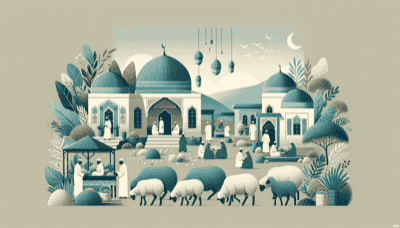We're here to help you keep count of the days to or since a date. Just click the button below and enter your chosen date to get started. Also choose the suggested days or search for a special day above #countingthedays

Id el Kabir, also known as Eid al-Adha, is one of the most important Islamic festivals and is widely celebrated in Nigeria. It marks the end of the Hajj pilgrimage to Mecca and commemorates Prophet Ibrahim's (Abraham's) willingness to sacrifice his son as an act of obedience to God, before God provided him with a ram to sacrifice instead.
Historical Significance: The festival honors the devotion of Ibrahim and signifies the readiness to give up something valuable for a greater cause.
Religious Observance: Muslims attend special prayers at mosques or open grounds called Eid grounds. The prayers are followed by a sermon where the story of Ibrahim’s sacrifice is often recounted.
Sacrificial Ritual: A key tradition is Qurbani, meaning sacrifice. Families who can afford it slaughter an animal, usually a ram, goat, cow or camel, as a symbol of Ibrahim’s sacrifice.
Sharing of Meat: The meat from the sacrificed animal is divided into three parts: one part for the family, one for relatives and friends, and one for the poor and needy.
Feasts and Social Gatherings: The day is marked with feasts as families come together to share meals made from the sacrificed animal.
Charity: There's a strong emphasis on charity; giving to those less fortunate is an integral part of the celebration.
Gift Exchanges: Gifts are often exchanged among family members and friends.
Public Holiday: In Nigeria, Id el Kabir comes with additional public holidays announced by the government to allow full participation in festivities.
Note: The exact dates vary each year according to the Islamic lunar calendar. In Nigeria, due to its significant Muslim population, these days are recognized as national holidays allowing Muslims across the country time off work for celebrations.